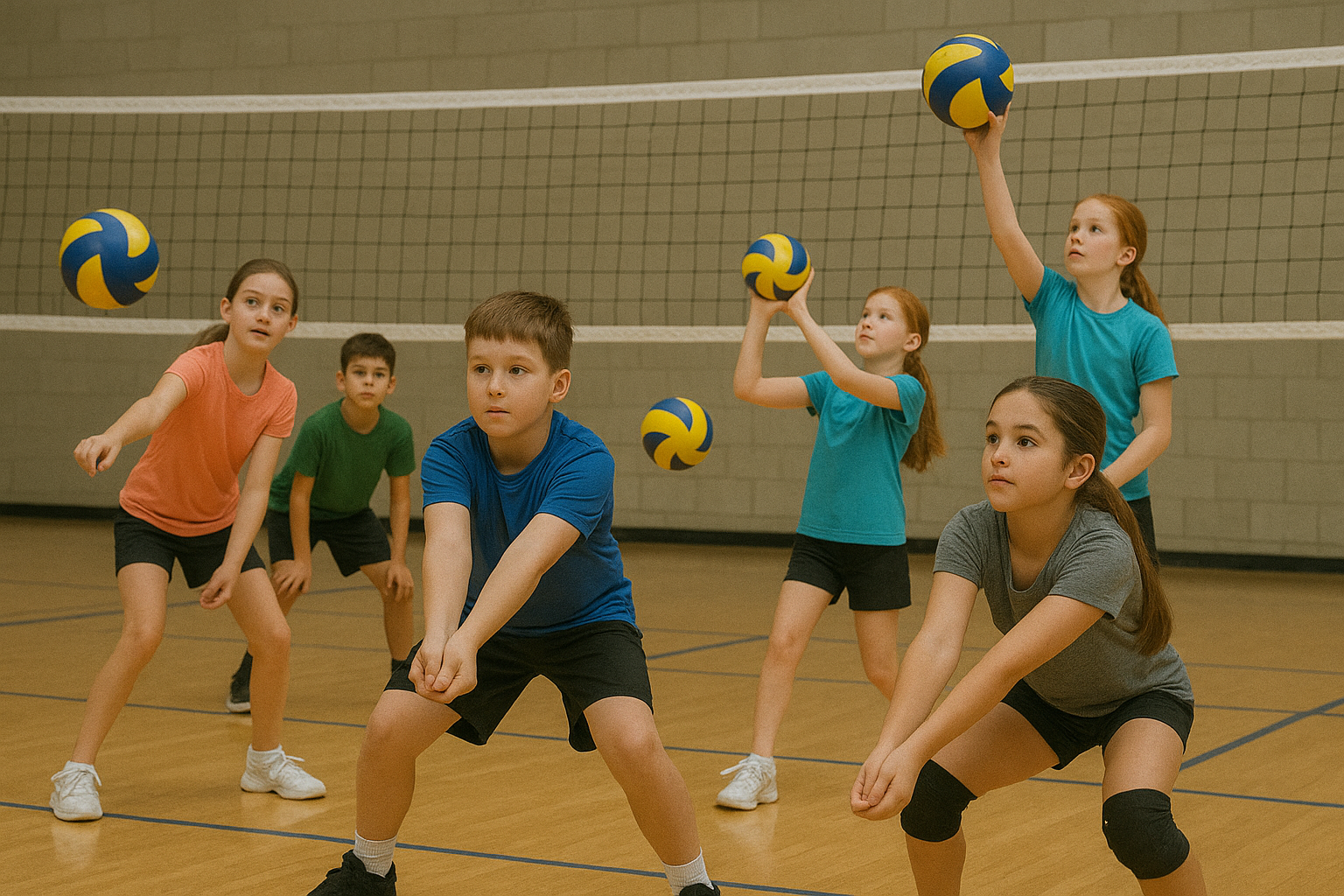Benefits of Playing Kids Volleyball for Health and Growth

Children offer a lot of opportunities to have fun playing volleyball. It is a sport that helps young athletes to be active in Australia, learn teamwork and create self -confidence by supporting healthy physical and mental development. Whether children are new in sports or already develop their skills, volleyball provides a permanent advantage that shapes their good and character. Parents who seek healthy activities for their children often find that volleyball for children attack the right balance between learning and social interaction.
1. Physical Fitness and Strength Development
One of the most visible benefits of kids Volleyball is the improvement in physical health. The game requires constant movement, whether it is running, jumping, or reacting quickly to the ball. These movements strengthen muscles, improve balance, and enhance flexibility. As children grow, these activities help their bodies develop in a healthy way.
Volleyball for children also contributes to heart health. Regular practice improves endurance, so young players can be active without tired easily. Negination of sports, but dynamic movements encourages healthy bones and joints, which is especially important in childhood and adolescents. These physical benefits ensure that children not only become strong players, but also like health benefits.
2. Coordination and Motor Skills
In volleyball for children, players should focus on time, body control and coordination to succeed. Either service, passing or pigging, each action requires accurate movements. This exercise increases coordination of hand-eye, balance and general motor skills. These improvements are spread to other activities, from school sports to physical functions every day.
When children run volleyball for children, they learn to control their movements under pressure. This skill development not only makes them a better athlete, but also helps them feel more confident in other physical activities. Better coordination contributes to a strong basis for lifelong fitness and reduces the possibility of injury during the game.
3. Building Confidence Through Achievement
Self -confidence plays an important role in a child’s development, and volleyball for children is a game that encourages self -confidence. Every time a player passes successfully or creates a point, it increases confidence. Over time, children begin to rely on their abilities and understand the value of practice and endurance.
Coaches and teammates often provide encouragement to children’s programs, which helps young players remove fear of mistakes. Instead of focusing only the results, the game highlights progress and effort. This positive environment allows children to gain confidence, which benefits them for both sports and personal situations.
4. Teamwork and Social Skills
Another great advantage of volleyball for children is to focus on teamwork. Volleyball cannot be played alone; Each point requires collaboration between the teammates in the team. Children learn quickly that communication, confidence and mutual support are needed to succeed.
In volleyball for children’s programs in Australia, players spend time working together in practice and competition. These experiences help them create friendship, respect the strength of others and contribute to group efforts. Such teamwork not only creates a supportive environment in court, but also strengthens social skills that children take to school and other areas of life.
5. Discipline and Focus
Success in volleyball for children requires concentration and discipline. Players should listen to instructions, practice regularly and remain concentrated during matches. This discipline is naturally transferred to their daily routine, including study habits and time management.
Volleyball for children helps children understand that improvement comes from continuous effort. Recruitment of discipline in court encourages responsibility and dedication, and prepares young athletes for challenges in both sports and life.
6. Mental Health and Emotional Growth
Physical activity is closely associated with mental health, and the children offer an excellent outlet for volleyball stress and energy. The game encourages children to stay active, which helps improve the mood and reduce anxiety. Playing regularly gives young athletes a sense of purpose and performance, and contributes to emotional welfare.
Participation in volleyball for children also increases flexibility. Players learn to handle errors, accept reaction and improve. This ability to remain positive and motivated ahead of challenges supports emotional development and prepares children to meet difficulties beyond sports.
7. Healthy Lifestyle and Long-Term Habits
Starting with children can set the foundation for volleyball for lifetime healthy habits. Regular training and matches encourage children to see training as a nice part of the routine. This mentality helps to reduce the risk of inactivity later in life, and promotes a healthy lifestyle to adulthood.
Through volleyball for children, children also develop an understanding of the importance of nutrition, humidity and comfort. These lessons learned at an early age guide them to alternatives that support their development and long -term welfare.
8. Community and Belonging
Volleyball brings children to a society where they feel supported and involved. Being part of the volleyball teams for children gives players to be related, which is especially important during the first years. Friendships and bonds created in training sessions and matches are often spread across the court, making strong social relationships.
Many families in Australia choose volleyball for children, as it combines the game with a supportive society. This environment lets children flourish not only as athletes, but also as individuals who feel connected and valuable.
Conclusion
The benefits of playing kids Volleyball go far beyond physical activity. It helps children grow stronger, build confidence, and develop essential social and emotional skills. By taking part in Volleyball for kids programs in Australia, young athletes gain more than just the ability to play a sport. They learn lessons about teamwork, discipline, and resilience that shape their health and character for life.
An activity for parents who support both development and welfare gives children volleyball a complete solution. The court becomes a place where children not only play, but also learn to believe in themselves, get in touch with others and embrace a healthy lifestyle.



